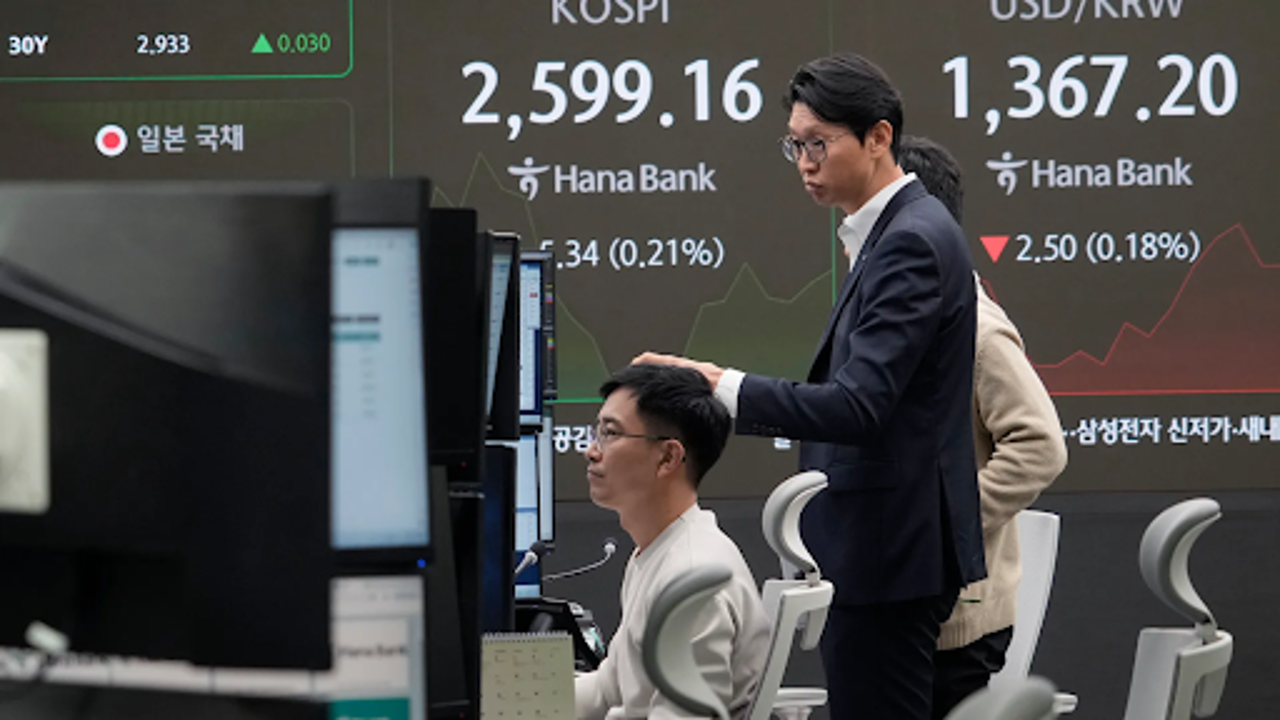
Asian markets are mostly up today, following another strong finish on Wall Street.
Asian stock markets started the week mostly on a positive note after Wall Street concluded another strong week. While most markets in the region saw gains, Hong Kong's Hang Seng Index dropped by 0.6%, standing at 20,869.39. On the other hand, China’s Shanghai Composite Index rose by 0.8% to reach 3,288.32, and the smaller Shenzhen market’s A-share index saw a more significant jump of 2.2%.
The rise in Chinese markets was fueled by government policies, specifically cuts to the one-year and five-year Loan Prime Rates (LPR). These rates are crucial for lending, especially in the property sector, which has been struggling due to stricter borrowing rules implemented years ago. Lower rates help ease financial pressure on borrowers, particularly property developers. However, economists remain cautious, noting that the key to recovery is likely to be increased government spending rather than just monetary adjustments. Capital Economics’ Zichun Huang commented that while China’s Finance Ministry has promised to boost spending, it may only result in a temporary improvement in the economy.
Elsewhere in Asia, Japan’s Nikkei 225 index climbed 0.3% to 39,078.33, and South Korea’s Kospi rose by 0.8%, hitting 2,614.75. Australia’s S&P/ASX 200 also gained 0.7% to reach 8,340.40.
Oil Prices Rise Amid Eased Geopolitical Concerns
Oil prices inched higher on Monday after last week’s decline. Investors' concerns over potential disruptions to Iran’s oil production have lessened. There were earlier fears that Israel might target Iranian oil facilities following tensions in the Middle East. Any strikes could have disrupted Iran’s significant crude exports to China and other countries. Concerns over weaker demand from China also impacted oil prices recently.
U.S. crude oil rose by 38 cents, bringing it to $69.07 per barrel, while Brent crude, the international benchmark, increased by 31 cents to $73.37 per barrel.
Currency Movements
The Japanese yen slipped slightly, trading at 149.23 per dollar, down from 149.57 on Friday. The yen has been weakening amid speculation that the Bank of Japan might slow down its pace of interest rate hikes. Meanwhile, the euro remained relatively stable, trading at $1.0865.
Wall Street Continues to Set Records
On Wall Street, major indices closed at record highs once again. The S&P 500 gained 0.4%, closing at 5,864.67, surpassing its previous high set earlier in the week. The Dow Jones Industrial Average inched up by 0.1%, closing at 43,275.91, while the Nasdaq composite saw a 0.6% rise, ending the week at 18,489.55.
Wall Street has enjoyed a relatively calm trading environment, with the S&P 500 achieving its sixth consecutive week of gains. This marks its longest winning streak in 2024. Optimism around the U.S. economy's ability to avoid a severe recession, despite inflationary pressures, has fuelled market confidence. Solid economic data has contributed to hopes that the Federal Reserve’s recent interest rate cuts will continue to support growth.
One of the biggest contributors to Wall Street’s performance last week was Netflix, which saw its shares jump by 11.1% after reporting stronger-than-expected profits for the latest quarter. In contrast, CVS Health experienced a 5.2% drop following a warning that its quarterly profit would likely miss expectations.
Traders are increasingly expecting the Federal Reserve to cut interest rates by a quarter of a percentage point at its upcoming November meeting. Earlier, there was speculation of a larger cut, but recent positive economic updates have lessened the need for drastic measures.















